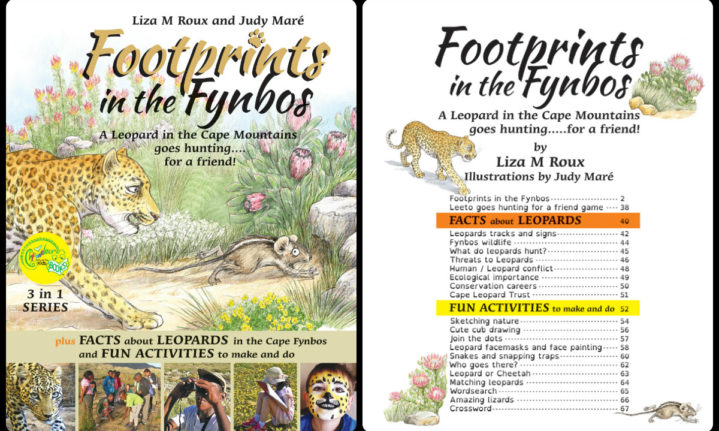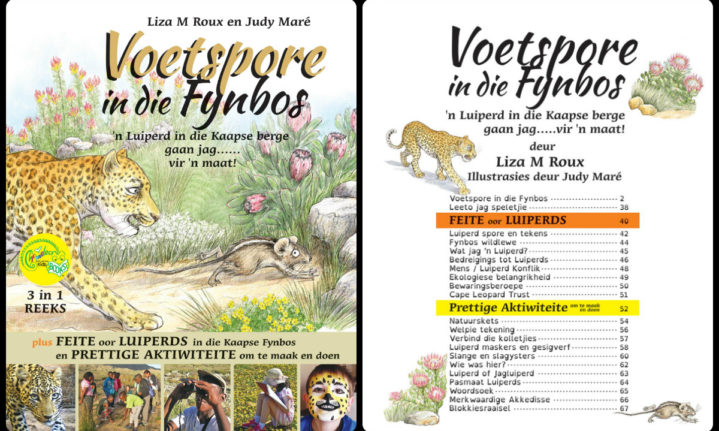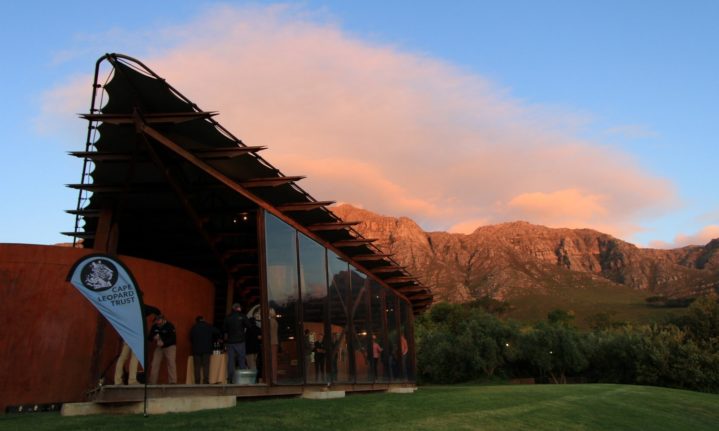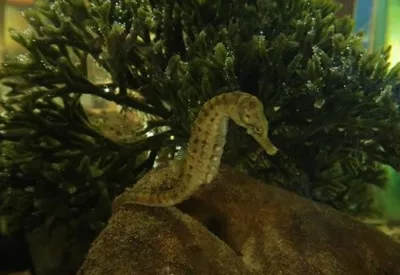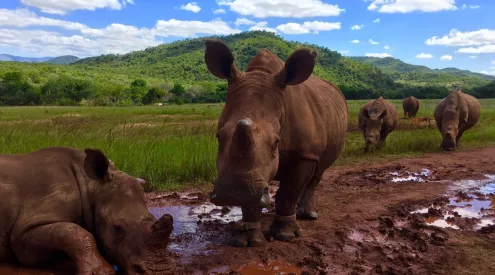The Cape Leopard Trust (CLT) Environmental Education (EE) Project recently celebrated ten years of its innovative experiential education programme of activities, including wilderness camps, eco-clubs, day outings, holiday programmes and presentations.
However, in March the EE team was forced to curtail all direct contact work as a result of lockdown restrictions, and had to adapt and rethink their teaching model.
E-learning became the order of the day and the newly created collection of CLT online lessons, career showcases and virtual hikes were positively received. The lockdown also presented an ideal opportunity to work on a longstanding dream – a dream of creating a children’s book that could double as a teaching resource in the EE programmes.
The book, called ‘Footprints in the Fynbos’ (English version) and ‘Voetspore in die Fynbos’ (Afrikaans translation) is a collaborative effort drawing on 16 years’ worth of CLT research, the writing art of children’s book author Liza M Roux and the engaging illustrations of Judy Maré.

Footprints in the Fynbos
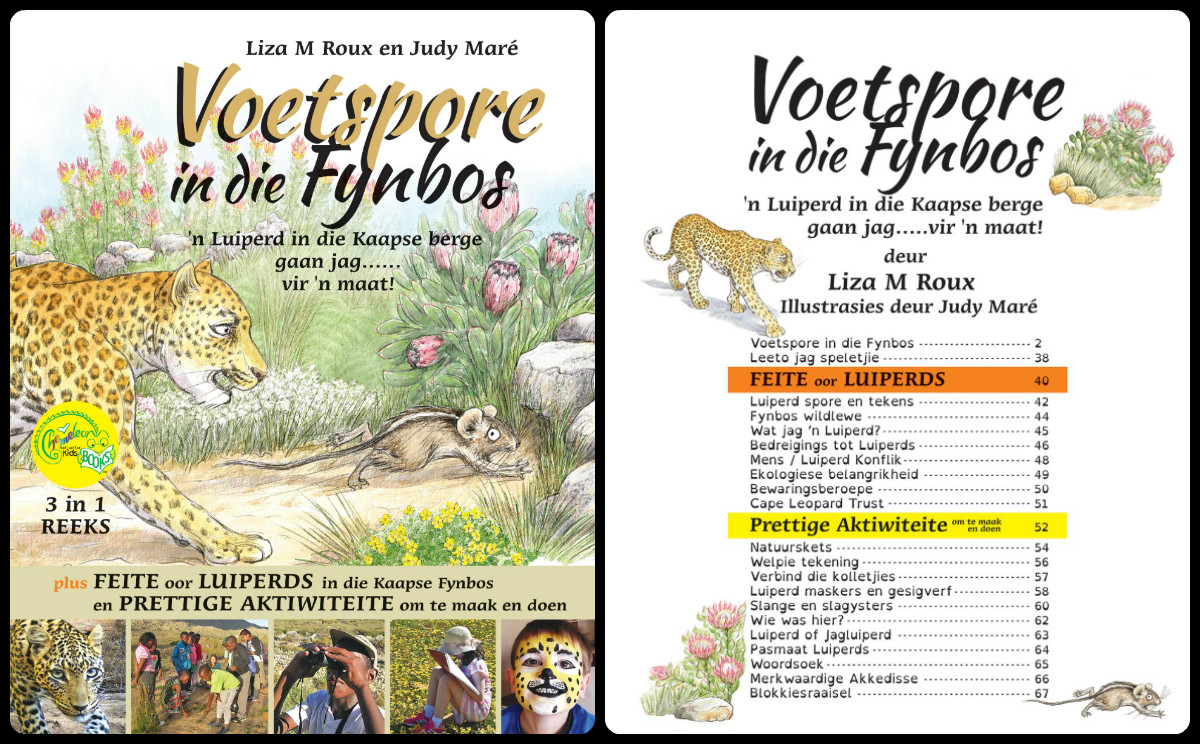
Voetspore in die Fynbos
On Thursday October 29, the dream culminated in the launch of the published book at an intimate event hosted by Dylan Lewis Sculpture Garden, Cederberg Wines and Regina Mundi Global Advisors.
Attended by private, corporate and NGO partners, the evening included a screening of the CLT short film For the Love of Leopards, and a special book reading in the garden’s amphitheater.
The launch also officially opened an exhibition of junior art pieces submitted to the CLT annual youth art competition over the past years.
The display, entitled ‘Leopards of the Cape – Surviving against all Odds’, will be in residence at the garden until November 14 2020. The art pieces will be available for sale (but cannot be removed from the exhibition until after the 14th).
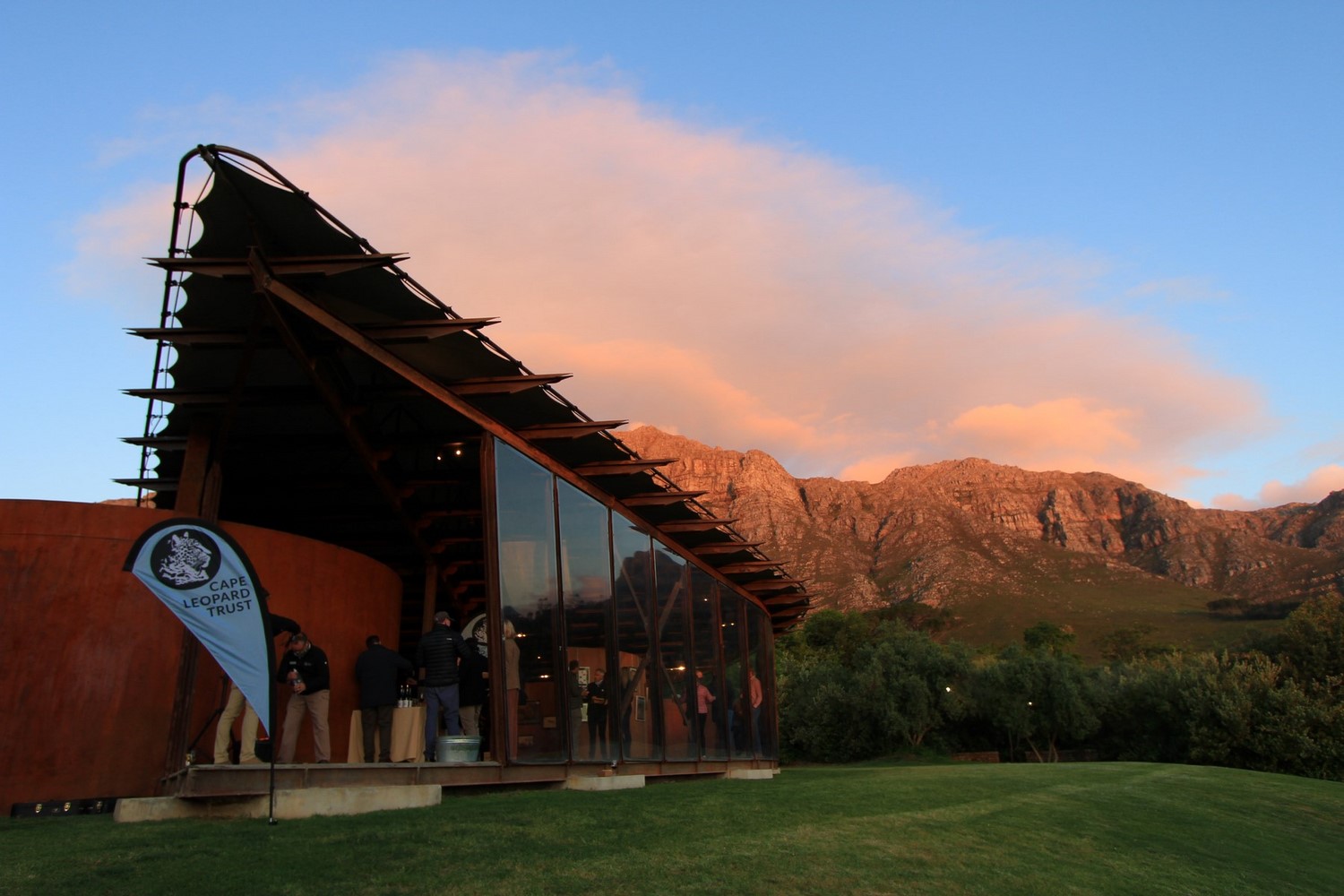
The intimate book launch was hosted at the Dylan Lewis Sculpture Garden
More about the book:
The book consists of 3 sections – a leopard focussed story, a facts section and activity pages. Set in the Cape Mountains, the story follows Leeto the leopard on his journey to find a friend, meeting many characters along the way and learning valuable life lessons.
The second part of the book is a selection of easily digestible facts, while the final section includes fun activities for young and old.
The goal was to offer an accessible and entertaining activity book aimed at participants between the ages of 7-14, introducing them to leopards and the CLT, explaining the importance of conservation and encouraging youngsters to take interest and pride in their natural environment.
The book has been developed in engaging fun-to-read and easy-to-follow prose. Rather than being presented didactically, the learning outcomes are approached in a playful, interactive manner. The educational teaching and learning resources contained in the book are aligned with the South African school curriculum, and the book is written in a dyslexic-friendly font with weighted characters.
Future vision for the book:
To increase awareness and broaden our impact we are working with partners on an isiXhosa translation, as well as a South African sign language interpretation of the story and an audiobook in English, Afrikaans and isiXhosa to aid teachings to hearing and visually impaired learners.
The book was originally intended as a teaching tool for the CLT EE programme, but it quickly became evident that there was a wider need for this kind of resource.
It was decided to also offer the book for sale and so far, the response has been overwhelming.
‘Each book sold enables us to gift another book to an underprivileged child in South Africa, many of whom have never had a book to call their own.
‘One of our longstanding partners, Regina Mundi Global Advisers, has already agreed to sponsor 150 books to under-resourced schools in our study areas and for that we are extremely grateful,’ said CLT.
Book availability and Call to Action:
Footprints in the Fynbos / Voetspore in die Fynbos is available for sale at the CLT online shop at a cost of R160 (excluding shipping).
From November 1st the book will also be available from a number of external stockists, these will be listed on the website www.capeleopard.org.za
The Cape Leopard Trust wants to make the book available to isiXhosa as well as visually challenged and hearing-impaired learners still require major funding. If you are able to help, please contact Chris Eksteen at [email protected]
Picture: Supplied









